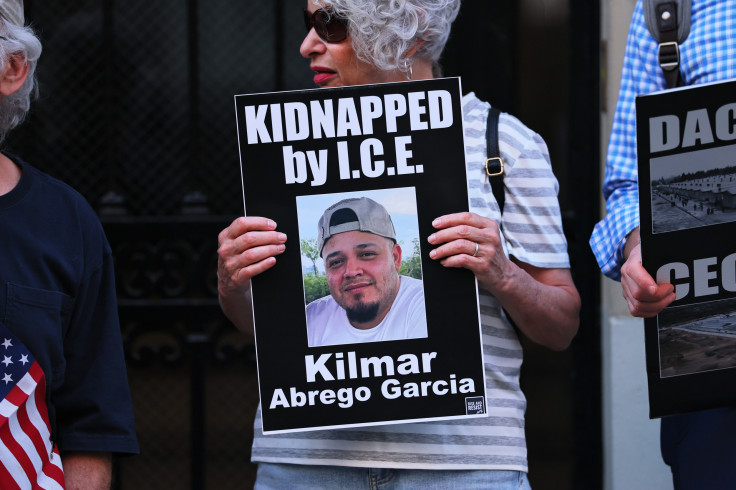
A federal judge ruled that Kilmar Abrego Garcia, the Maryland man mistakenly deported to El Salvador who has become one of the faces in the Trump administration's mass deportation program, is eligible to be released from custody while he awaits a federal trial on human smuggling charges.
U.S. Magistrate Judge Barbara D. Holmes said the government "failed" to prove that Abrego Garcia, an immigrant from El Salvador, poses enough of a danger to society that he should be held while he awaits trial on charges that he participated in a migrant smuggling ring for nearly a decade.
She also noted that under federal criminal law, the Justice Department hadn't shown it had enough evidence to hold a hearing seeking his pretrial detention.
Abrego Garcia is being held in Tennessee as he faces a federal indictment of smuggling undocumented immigrants across state lines in 2022. He is back in the U.S. after the Trump administration wrongly deported him to a Salvadoran maximum security prison.
Multiple federal judges and the Supreme Court have ruled that his removal was unlawful because an immigration judge in 2019 granted him protection from being deported to his native country after finding that he could face persecution from gangs there, The Washington Post reports.
Abrego Garcia pleaded not guilty on June 13 to smuggling charges that his attorneys have characterized as an attempt to justify his mistaken deportation in March to a notorious prison in El Salvador. That hearing was the first chance the Maryland construction worker had in a U.S. courtroom to answer the Trump administration's allegations.
The 51-page ruling written by Holmes essentially deems DOJ accusations about Abrego Garcia to be overblown— built upon evidence with questionable reliability from a traffic stop, cooperators in the case providing information to law enforcement through hearsay, and a shake theory of victimizing children in a human-smuggling operation when that has not been charged or proved by the DOJ, CNN reports.
Nevertheless, Abrego Garcia is not expected to go free anytime soon, as Immigration and Customs Enforcement (ICE) will likely take him into custody and possibly try to deport him, The Associated Press explains. Likewise, the U.S. government has already filed a motion to appeal the judge's decision and is asking the judge to stay her impending release order.
Attorney General Pam Bondi and the prosecutor in the case, Robert McGuire, had emphasized how smuggling operations could be dangerous. The danger, the DOJ argued, stretched from putting adults and children at risk while traveling in packed vehicles, potentially without seat belts, to how the transport of migrants could connect to gang membership in the U.S.
"There is no dispute the offenses of which Abrego is charged are not crimes against children and the involvement of a minor child is not an element of the charged offenses," Holmes wrote Sunday.
And, she continued, "the government cannot simply rely on the general reputation of a particular street gang" to argue Abrego Garcia may be dangerous if he has ties to the group MS-13, as the Justice Department had argued, citing the beliefs of cooperators facing their own charges and deportations.
Before his deportation, Abrego Garcia had most recently worked as a sheet-metal apprentice, Holmes noted. He is a member of the Sheet Metal, Air, Rail and Transportation union. If released, the judge said the union has offered to continue his apprenticeship and help him find work. CASA, an immigrant advocacy group which accompanied Abrego Garcia's family to the hearing in Nashville, also has offered to connect him to health care and mental health services after his long incarceration in El Salvador.
© 2025 Latin Times. All rights reserved. Do not reproduce without permission.




